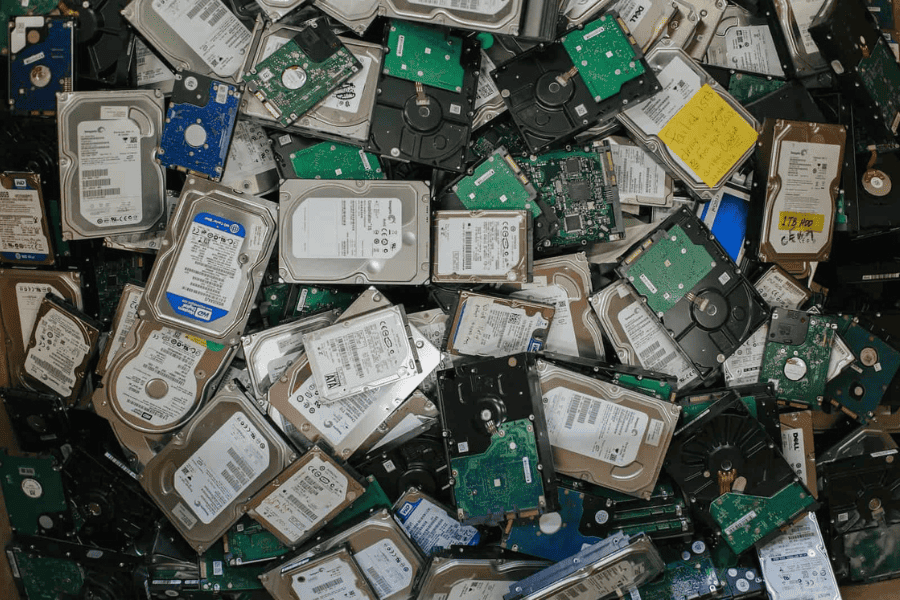
Did you know that more than 266 million pounds of electronic waste are available for recycling in Minnesota every year? It’s true. Unfortunately, a new pilot study found that, statewide, less than a quarter of that e-waste is captured…despite the clear benefits (both environmental and economic) of reusing or recycling it.
Repowered’s own Maria Jensen was an integral part of the study (along with members of the Iron Range Partnership for Sustainability), which has garnered a lot of attention since it was published in March of this year.
Let’s take a closer look at the findings of that pilot study, the ripple effects it’s having, and next steps needed to improve e-waste recycling in Minnesota.
The Economic Potential of E-Waste Recycling in Minnesota: A Pilot Study
This study looked at peer reviewed research, reports, and local data on e-waste in order to document the elements contained in 14 categories of e-waste and calculate the proportion and weight of 62 metals present in each category.
They estimated that the value in a single year’s worth of e-waste generated in Minnesota (at a 100% recycling rate) would be a whopping $2.8 billion. That would include enough silver to produce 441,000 solar panels and enough copper for 155,000 electric vehicles per year!
Recycling or refurbishing that amount of e-waste would also result in more than 3,000 new Minnesota jobs.
Repowered’s Connection to This Study
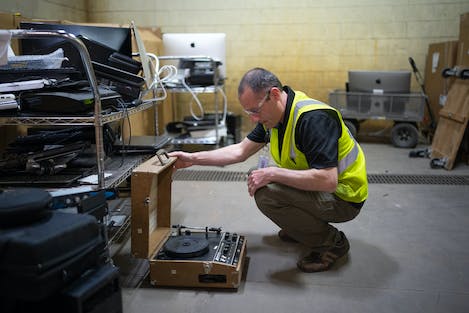
Repowered assisted this study by providing data on e-waste category types and the proportion of each category by weight in a typical e-waste stream.
What’s more, our own Maria Jensen, Advocacy Manager at Repowered, was one of the researchers on this study.
Maria is a lifelong environmental advocate with a love of the outdoors, who from a young age was active around the issue of copper sulfide mining in the Boundary Waters wilderness area. She received her bachelor’s in political science and master’s in global health, and her research around occupational exposure to mercury during the recycling of fluorescent bulbs is what sparked her interest in e-waste.
Maria has been with Repowered since 2020, initially serving as our Health and Safety Specialist and now as our Advocacy Manager.
The opportunity to take part in this pilot study brought together her initial passion regarding environmental issues around mining and her newfound interest in e-waste mining (extracting valuable metals from e-waste as an alternative to traditional mining).
Initially, Keith Steva and Marlise Riffel of the Iron Range Partnership for Sustainability approached Roopali Phadke, a professor of environmental policy and politics at Macalester College, who connected them with Maria. The four worked together on this study for almost a year before publishing it in March.
The Impact The Study Is Already Having
Since the research team shared the pilot study with the world, it has gotten a fair amount of media attention, including this article by KARE11.
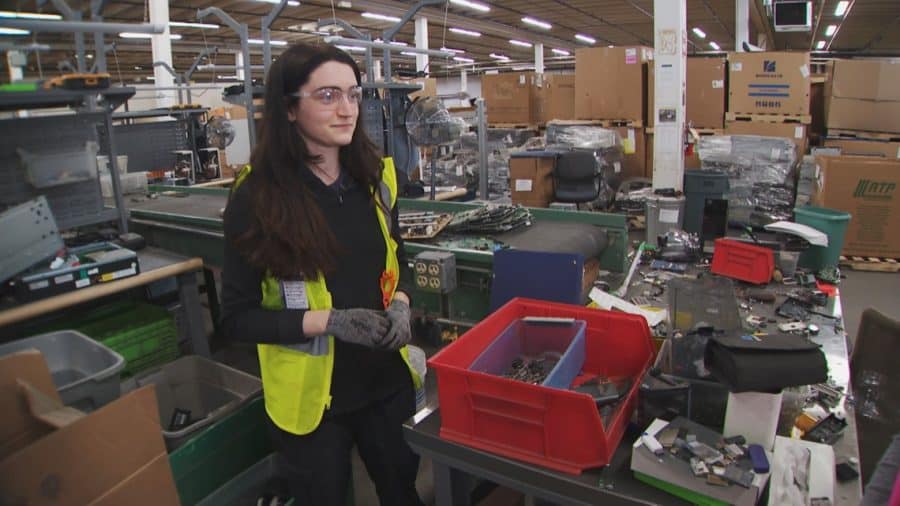
Its effects have begun to impact other areas as well. Maria told us:
“What’s been really fun to see is the ripple effect this study has had since it’s been published. The NRRI (Natural Resources Research Institute) has decided to hire two employees to research hydrometallurgy, which is a more environmentally-friendly way of extracting the metals from e-waste. There’s not a direct line between us and them, but we’ve been in conversations with them about this topic, encouraging them to research it and offering our support … And in the past few weeks a group of environmentalists have been talking about creating an association for this topic. So there have been a lot of things happening around this issue.”
Maria and her research partners have also been in conversation with Representative Athena Hollins (the Majority Whip of the MN House of Representatives) about this topic.
One of the changes they’d like to see is an update to Minnesota’s 2007 Electronics Recycling Act. As it stands, the legislation only covers certain types of electronics. The team would like to see the language changed to encompass all types of e-waste as well as to include the addition of a statewide free universal e-waste drop off.
Free electronics drop off would be necessary to collect 100% of the state’s electronics, as people would be more likely to recycle their e-waste if they didn’t have to pay for it. Maria added, “We think the way to get there is to create incentives for collectors and to reimburse them for the costs of shipping and disposal, and even some employee time.”
Next Steps: How You Can Be a Part of Improving E-Waste Recycling in Minnesota
The prospect of actually collecting 100% of Minnesota’s e-waste for reuse or recycling is an exciting one! However, as a bill proposing the aforementioned updates to the Electronics Recycling Act won’t be introduced until sometime next year, it may take a while to get there.
In the meantime, something every one of us can do to get closer to this goal is to responsibly recycle our own electronics.
Each of us—individuals and businesses alike—have a “drawer of shame” filled with old electronics like cell phones, computers, gaming systems, cords, and so on (you know the one).
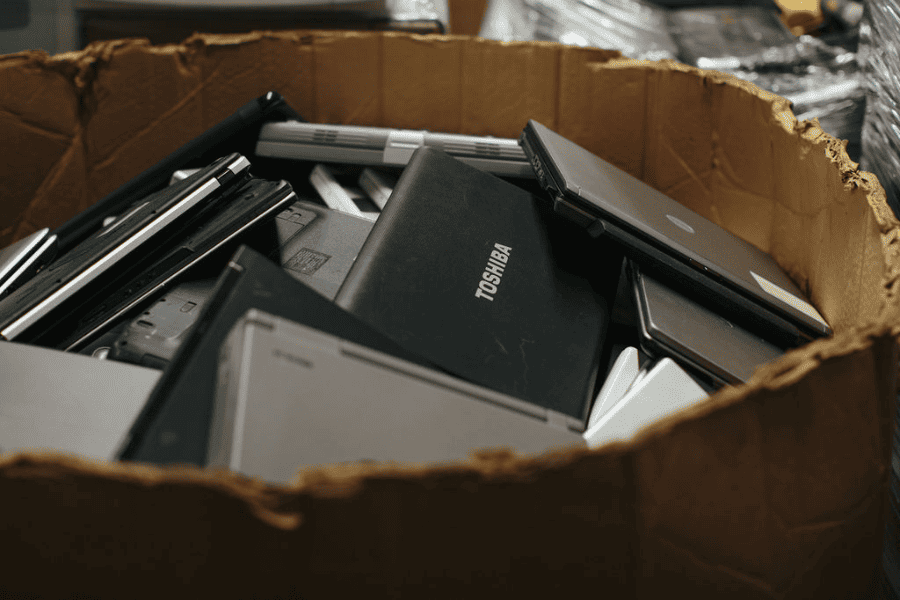
As a certified electronics recycler, Repowered recycles just about anything with a battery, cord, or circuit board (learn more about the items we recycle here).
By recycling your old electronics with Repowered, you not only keep harmful materials out of the environment, but you also help put valuable metals back into the circular economy.
If you’re ready to part with your used electronics, visit us at one of our drop-off locations, or give us a call at 763.432.3117 to inquire about onsite pickup for businesses.
Recent News & Articles

How Fair Chance Hiring Benefits Your Business
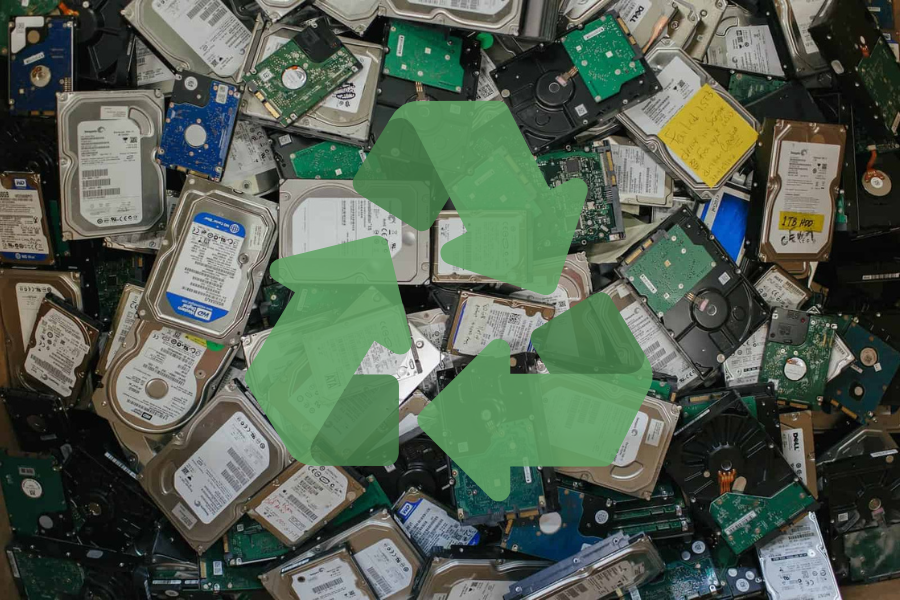
Earth Day at Repowered: 4 Ways We’re Making a Difference for the Planet

